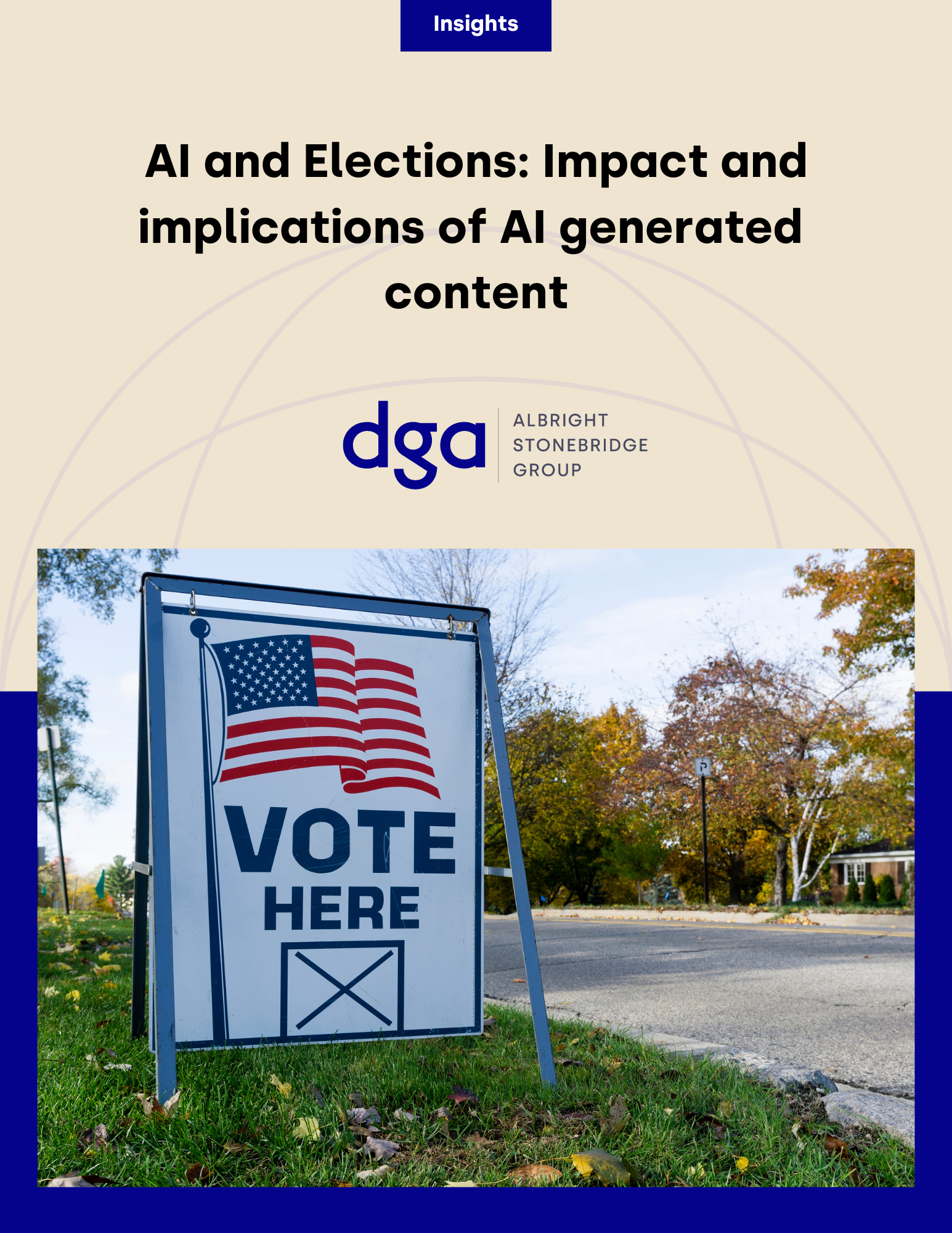AI and Elections: Impact and Implications of AI Generated Content

Key takeaways
- Despite widespread concern voiced in Washington D.C. and the media about AI’s potential to supercharge disinformation in the context of elections, the 2024 U.S. election process has not yet seen malicious applications of AI at scale.
- Recent elections in the EU, as well as national elections in France and the UK saw limited influence from AI-generated content. Efforts to regulate the use of AI-generated material in Europe have, thus far, largely fallen under the Digital Services Act (DSA) and have otherwise emphasized voluntary codes of conduct.
- Recent experiences in the Global South offer a series of real-world examples of AI deployed by campaigns and external actors in the context of elections. Campaigns have experimented with using AI to connect with voters, illustrating potential positive applications of AI -- assuming it does not undermine candidates’ perceived authenticity.
- Amidst public hesitation around AI, technology companies have been forward leaning in grappling with these risks. Their mitigation tactics are comprised of guardrails for content creation and as well as defining disallowed use of the content. Private sector actors have also taken a lead in coordinating content provenance standards which lay the groundwork for protecting the information ecosystem.
- As private sector entities beyond the technology industry build AI into public facing products, integrating state-of-the-art provenance standards, including metadata and watermarking techniques, will help to mitigate risks associated with system misuse and liability.
- The anxiety around AI and elections should be understood in the context of declining public confidence in democracy around the world. The use of social media by foreign actors in the 2016 U.S. election primed Americans to see technology as a potential threat to democracy. Additionally, increasing multipolarity and global inertia in the face of climate change, the COVID-19 pandemic, and rising inequality has driven doubts about the functionality of democratic models. Amidst this sense of endangerment, democracies are especially attuned to their vulnerabilities.
Read the full insights here.
About DGA Group
DGA Group is a global advisory firm that helps clients protect – and grow – what they have built in today’s complex business environment. We understand the challenges and opportunities of an increasingly regulated and interconnected world. Leveraging the experience and expertise of Albright Stonebridge Group, a leader in global strategy and commercial diplomacy, and a deep bench of communications, public affairs, government relations, and business intelligence consultants, we help clients navigate and shape global policy, reputational and financial issues. To learn more, visit dgagroup.com and albrightstonebridge.com.
For additional information or to arrange a follow-up, please contact Jessica Kuntz.
